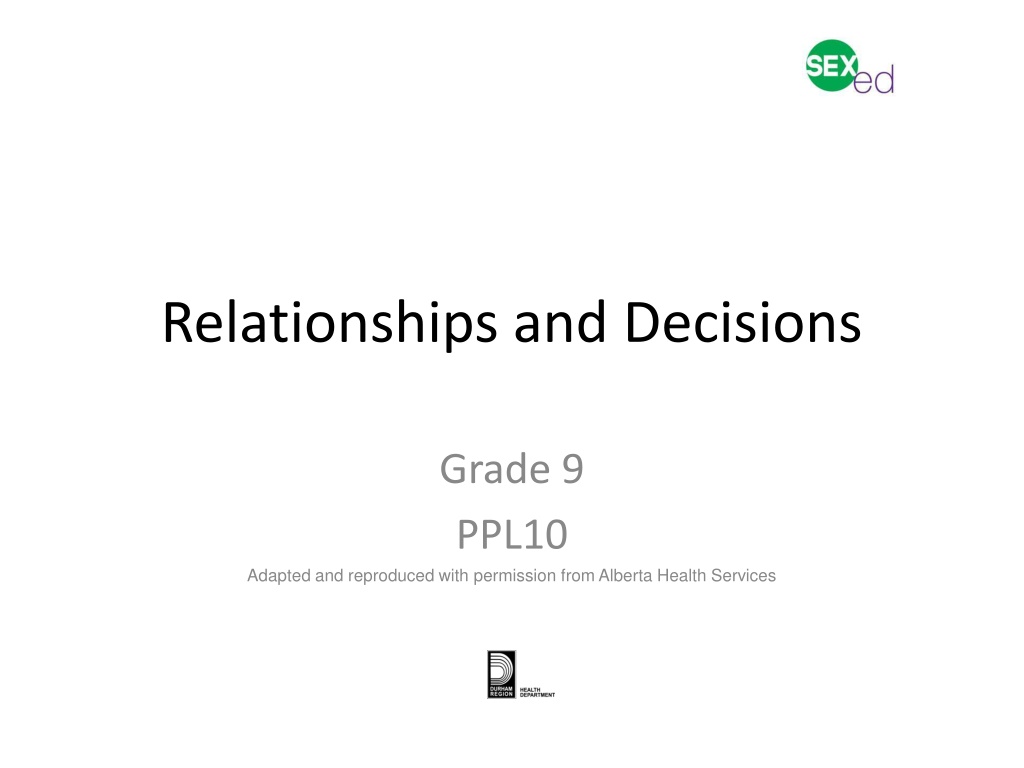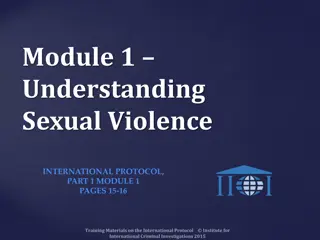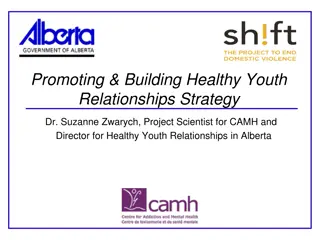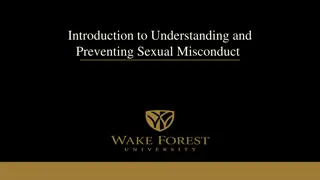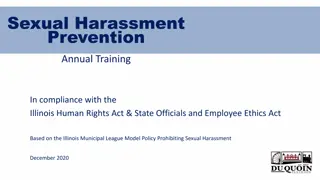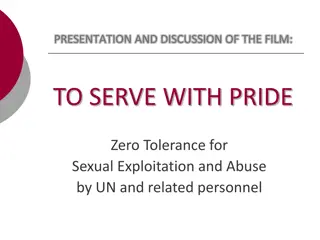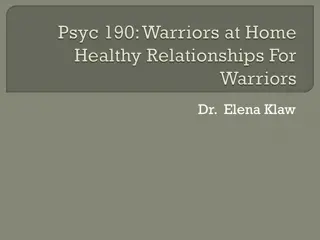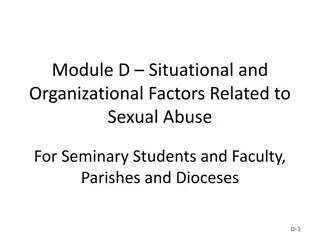Understanding Healthy Relationships and Sexual Decisions
Explore the definitions of healthy and unhealthy relationships, abstinence, virginity, and factors influencing sexual decisions. Learn about the benefits of relationships, characteristics of healthy vs. unhealthy relationships, and the distinction between abstinence and virginity. Discover that being abstinent does not require being a virgin, as abstinence can be chosen at any time.
Download Presentation

Please find below an Image/Link to download the presentation.
The content on the website is provided AS IS for your information and personal use only. It may not be sold, licensed, or shared on other websites without obtaining consent from the author. Download presentation by click this link. If you encounter any issues during the download, it is possible that the publisher has removed the file from their server.
E N D
Presentation Transcript
Relationships and Decisions Grade 9 PPL10 Adapted and reproduced with permission from Alberta Health Services
Lesson Content Define relationships Healthy and non-healthy relationships comparison Define abstinence and virginity Discuss factors that influence sexual decisions
Relationships Define the term relationship What are some examples?
Benefits of a relationship Love Companionship Safety Shared interests Affection Sharing hopes, dreams, problems Someone is there for you Shared religion or culture Someone to have fun with
Healthy vs. Unhealthy Characteristics of a Healthy Relationship Characteristics of an Unhealthy Relationship Happiness Trust Love Affection Equality Mutual Respect Friendship Laughter Common interests Support Fair Arguments Acceptance Comfort Good communication Kindness Strong self-esteem Humour Fun You can be yourself No fear of each other Honesty Independence No trust No respect Jealousy Abuse (emotional, physical, sexual) Poor communication Low self-esteem Power Issues Unfair arguments Other person tries to change you Lies Coercion Manipulation Lack of understanding No fun Inequality Blaming Fear Feel like you can t be yourself Lack of trust Not independent people
Abstinence For some it means having no physical contact with other people. For others, it could mean having limited contact, allowing some activities but not sexual intercourse. Abstinence is often referred to as being 100% safe: meaning that it completely eliminates the risk of a sexually transmitted infection (STI) or unintended pregnancy.
Virginity Virginity has different meanings to different people and various cultures Generally speaking, it is defined as never having had sexual intercourse
Do you have to be a virgin to be abstinent? NO A person who is abstinent is not necessarily a virgin. A virgin has never had sexual intercourse. Someone who is abstinent may have had sexual intercourse in the past, but is not currently sexually active. The choice to be abstinent can be made at any time, regardless of past experience.
Sexual Involvement Vs. Abstinence In your group, brainstorm answers to the following questions. Remember, there are no wrong answers. WHAT INFLUENCES TEENS TO BE SEXUALLY ACTIVE? WHAT INFLUENCES TEENS TO PRACTICE ABSTINENCE?
Factors Influencing Abstinence or Delay in Sexual Involvement Family influences / Positive parent-teen relationships Personal values Moral, cultural or religious values Fear of being caught Fear of pregnancy or getting a sexually transmitted infection Not feeling ready Too embarrassed Have high educational or career goals Have knowledge about sexuality Have well developed decision making skills Have positive self-esteem Self-discipline
Factors Influencing Sexual Involvement Increased sex hormones after the onset of puberty Curiosity A sign of being grown up Punishing or rebelling against parents For intimacy and closeness Peer pressure Pressure from boyfriend or girlfriend Sexual images and messages in media Socio- economic status
Why might sexual involvement be different for different people?
